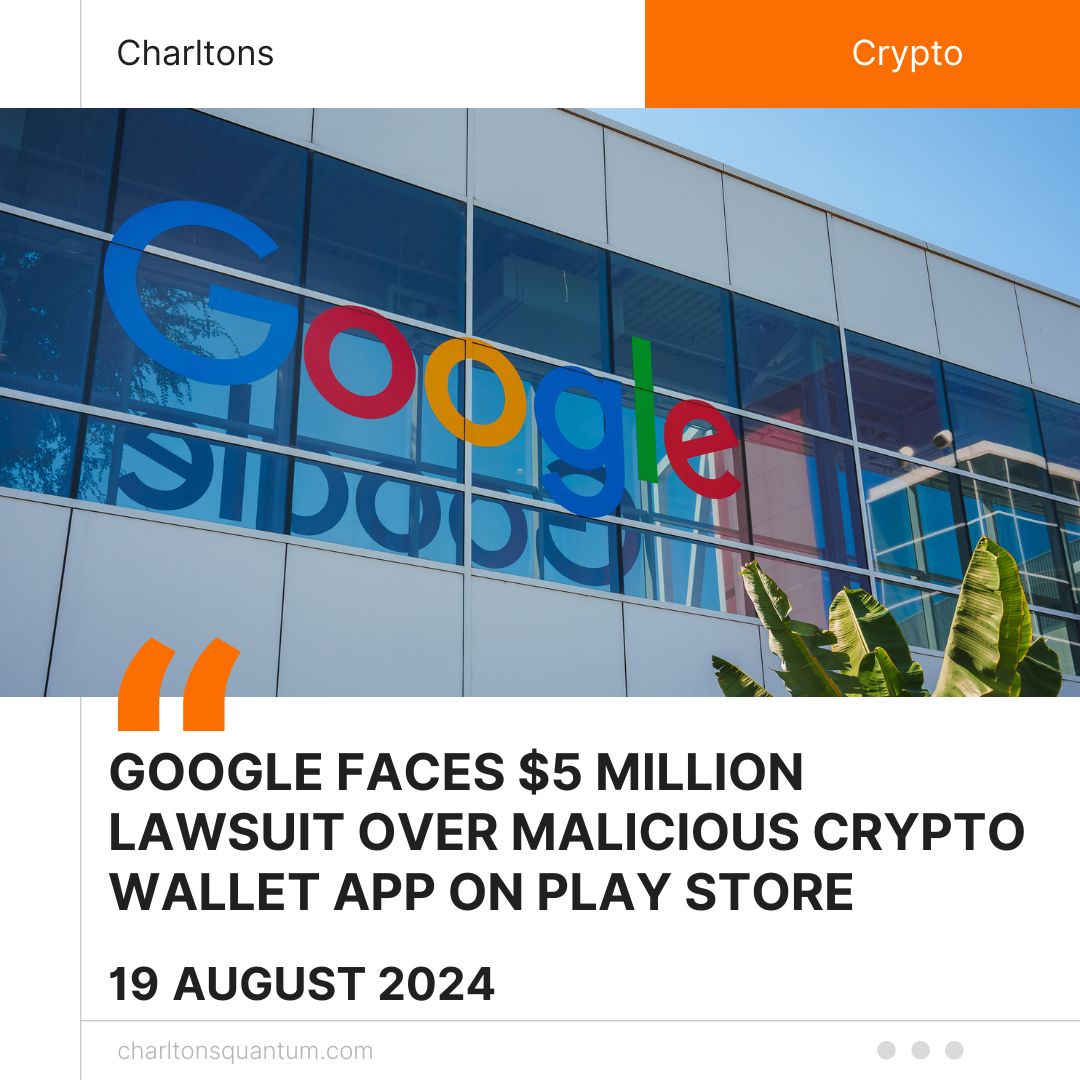
On 15 August, 2024, Google has come under legal fire as it faces a $5 million lawsuit filed by Maria Vaca, who alleges that a fraudulent crypto wallet app she downloaded from the Google Play Store led to the complete loss of her savings. The lawsuit, filed in a California state court, centers on the claim that Google should be directly responsible for the security of the apps it hosts, especially those that handle sensitive financial transactions, such as cryptocurrency.
According to the lawsuit, Vaca downloaded what she believed to be a legitimate crypto wallet from the Play Store, trusting in the platform’s reputation and the apparent authenticity of the app. However, shortly after installation, the app turned out to be malicious, effectively draining $5 million worth of her digital assets. The details regarding which specific crypto assets were stolen or the identity of the app have not been disclosed, leaving a cloud of uncertainty over the exact mechanisms used in the scam. This incident raises serious concerns about the adequacy of the security measures employed by Google in its app marketplace, particularly regarding the screening process for financial applications.
The relevance of this issue extends far beyond this single case, touching on the broader implications for tech giants operating in an increasingly digital and decentralized economy. As cryptocurrency continues to gain popularity and more individuals turn to digital wallets to manage their investments, the potential risks associated with these platforms grow exponentially. The security of these applications is now a matter of significant public interest, as even a single breach can result in catastrophic financial losses for users.
At the heart of the legal battle is the question of whether Google bears a legal obligation to thoroughly vet and review the authenticity of the apps available on its platform. While Google has implemented automated systems designed to screen apps for potential security threats, the effectiveness of these measures is now being called into question. The Play Store, with its vast array of applications, faces the daunting challenge of filtering out fraudulent or malicious software—a task that becomes even more complex when dealing with apps related to financial transactions, where the stakes are incredibly high.
Critics of Google’s current approach argue that the tech giant’s reliance on automated approval systems may not be sufficient to prevent sophisticated scams from slipping through the cracks. The rise of digital fraud has seen malicious actors develop increasingly complex methods to bypass these security protocols, leading to incidents like the one experienced by Vaca. The lawsuit underscores the need for a more rigorous and perhaps human-supervised review process, particularly for apps that could have severe financial implications for users.
This case also invites a critical examination of the broader responsibilities of digital platforms in ensuring the safety and security of their users. Should tech companies be held accountable for the apps they host, especially when those apps are found to be fraudulent? And if so, to what extent? The outcome of this lawsuit could potentially set a precedent, not only for Google but for other tech companies as well, shaping the future of digital marketplace regulations.
In addition, there are questions about whether platforms like Google Play should be more transparent about the steps they take to protect users. Should users be better informed about the risks associated with downloading certain types of apps, particularly those involving financial transactions? And should there be a stronger recourse for victims of digital fraud who have placed their trust in these platforms?
As the legal proceedings progress, the implications for Google and other tech giants could be profound. If the court sides with Vaca, it could lead to more stringent regulatory oversight of app stores and increased liability for companies that fail to protect their users from malicious software. This could also trigger a wave of similar lawsuits from others who have fallen victim to fraudulent apps, further challenging the current operational models of these platforms.
This lawsuit against Google brings to the forefront critical issues regarding digital security, user protection, and corporate responsibility in the age of cryptocurrency, and the role of platforms like Google Play in safeguarding these investments will be scrutinized more than ever.





